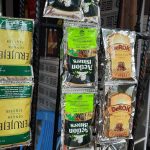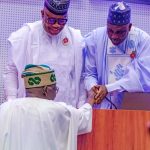The current challenges, which are the corollaries of a bold policy to reposition Nigeria on the track of financial sustainability, health, and growth, cannot be understated. But there is a plan to address them. There has always been a plan. The abrogation of petrol subsidy was expected to come with some pangs; hence the federal government’s effort to effectively garrison measures to attenuate the concomitants.
We must not allow the deeply disturbing rallying of gloom-ridden voices to obviate the eyes and minds of citizens from the Tinubu administration’s efforts to combat hunger and poverty levels. It will get better. But we have to let the government’s interventions breathe. Patience is of the essence. Patience.
PRESIDENT TINUBU’S FOOD SECURITY PLAN
On July 13, the federal government enunciated its plan to effectively address the creeping rise in food prices effectuated by the snowballing of petrol price. The government declared a state of emergency on food security – an all-out war against hunger. The government, evidently, appreciates the power of hunger; hence it is dealing delicately with matters of food security. Food security is national security. In policymaking, addressing hunger is pivotal — because “foodology” is at the nucleus of existence. Hunger is a madman. Hunger is violence. Many freaks, upheavals and misfortunes of history were by the fashioning of hunger. Hunger is a maximum ruler. It sets in motion inexorable forces of chaos and anarchy.
The federal government says all matters pertaining to food and water availability and affordability, as essential livelihood items, will now be within the purview of the National Security Council. It also says it will deploy some savings from the fuel subsidy removal into the agricultural sector focusing on revamping the sector.
According to Mr Dele Alake, spokesman of the government, the immediate intervention strategies are — release of fertilizers and grains to farmers and households to mitigate the effects of the subsidy removal; urgent synergy between the Ministry of Agriculture and the Ministry of Water Resources to ensure adequate irrigation of farmlands and to guarantee that food is produced all-year round; creation of a National Commodity Board that will review and continuously assess food prices as well as maintain a strategic food reserve that will be used as a price stabilisation mechanism for critical grains and other food items; and engage the security architecture to protect the farms and the farmers so that farmers can return to the farmlands without fear of attacks.
Mr Alake says through the National Commodity Board the government will moderate spikes and dips in food prices.
Other measures he says the government is initiating to arrest the current drift are: ”Activation of land banks. There is currently 500,000 hectares of already mapped land that will be used to increase availability of arable land for farming which will immediately impact food output; Mechanization and land clearing – The government will also collaborate with mechanization companies to clear more forests & make them available for farming; River basins – there are currently 11 rivers basins that will ensure planting of crops during the dry season with irrigation schemes that will guarantee continuous farming production all year round, to stem the seasonal glut and scarcity that we usually experience. We will deploy concessionary capital/funding to the sector especially towards fertilizer, processing, mechanization, seeds, chemicals, equipment, feed, labour, etc. The concessionary funds will ensure food is always available and affordable thereby having a direct impact on Nigeria’s Human Capital Index (HCI). This administration is focused on ensuring the HCI numbers, which currently ranks as the 3rd lowest in the world, are improved for increased productivity; Transportation and Storage: The cost of transporting Agricultural products has been a major challenge (due to permits, toll gates, and other associated costs). When the cost of moving farm produce is significantly impacted – it will immediately be passed to the consumers, which will affect the price of food – the government will explore other means of transportation including rail and water transport, to reduce freight costs and in turn impact the food prices.”
These remedial measures are timely and show that the government is attuned to the prevailing hardship. Addressing hunger is critical to deploying and sustaining other government plans and programmes.
Food security is national security. No nation can secure itself if its citizens are hungry. Insecurity, itself, is a manifestation of the corollaries of hunger. So, addressing food security with deliverable targets and a Marshall Plan is a must, and a commendable effort.
Interventionist plans — like the food security initiative — are the most effective in addressing the collateral ramifications of policy implementation and in achieving a multiplier effect on mass survivance.
Also, it is important that agriculture is, principally, recentred in the national policy dynamics. Agriculture provides employment for 35% of Nigeria’s population. It is a significant contributor to the local economy. Nigeria has about 70.8 million hectares of arable land. But the country is yet to actualise its full potential in agriculture. It, therefore, makes critical sense that the federal government is marshalling financial, material, and technological resources for the sector.
Nigeria is a country that has been dependent on oil for much of its 62 years as an independent nation. Over the years, there have been policies and programmes on agriculture. In 1963, the blueprint was — surplus extraction and export orientation.
The year 1972 brought the National Accelerated Food Production Programme, a pillar of the Gowon administration. There followed Operation Feed the Nation in 1976 by the Obasanjo administration, and Green Revolution in 1980 by the Shagari administration. In more recent years, there have been other programmes, but with a challenge of sustainability.
The Tinubu administration has unpacked a comprehensive, strategic, and feasible agenda to feed the nation. It is important we let the intervention breathe. Patience.
By Fredrick Nwabufo, Nwabufo aka Mr One-Nigeria is a media executive.
EDITOR’S NOTE
The views expressed in this content is solely that of the author and does not necessarily reflect the views of this newspaper.
























Leave a comment